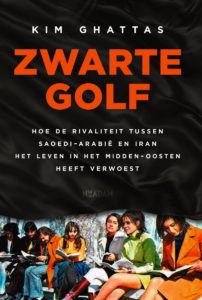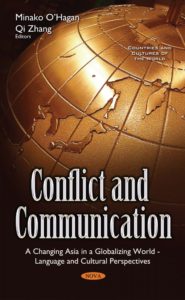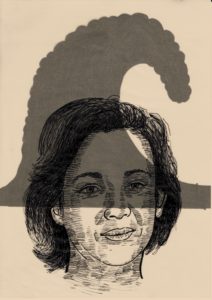Chomsky: COVID-19 Has Exposed The US Under Trump As A “Failed State”
The label “failed state” has started to fit the U.S. like a glove as the COVID-19 national health crisis continues to reveal the structural flaws and weaknesses of the United States, argues world–renowned public intellectual Noam Chomsky in this exclusive interview for Truthout. Meanwhile, the Trump administration continues to exact a high price in human lives due to its caricaturish but highly dangerousresponse to the crisis. In the interview that follows, Chomsky also analyzes what’s behind Trump’s encouragement of the “anti-lockdown” protests, discusses the right-wing determination to destroy the U.S.Postal Service, and lays out his views on the electoral “lesser of two evils” principle.
C.J. Polychroniou: Noam, it is widely accepted by now that the U.S. coronavirus response not only was delayed, but remains mired in contradictions as Trump battles with scientists over policy. Moreover, the country as a whole was shown to be completely unprepared for a major health crisis. Are we talking here not simply of an incompetent administration but also of a failed state?
Noam Chomsky: Fifteen years ago, I wrote a book called Failed States, a common locution in the day, referring to states that are incapable of meeting the needs of citizens, in the most important case because of deep policy choices, and are a danger not only to their own citizens but the world. The prime example was the United States. Extensive evidence was reviewed. That’s not of course the intended use of the phrase in the doctrinal system, just as “rogue state” means some enemy, not ourselves, the prime example.
I still stand by that judgment, which was not mine alone. A few years later, a Gallup/WIN international poll found that the U.S. is regarded as the greatest threat to world peace, no one else even close. And the severe threats of government policy to the domestic population, already quite apparent when the book appeared, became much clearer a year later when the housing bubble burst and the financial crisis ensued — along with Obama’s response: bail out the perpetrators, who became richer and more powerful than before, and forget about the congressional legislation that called for some help to the many who had lost their homes in corporate scams facilitated by the Clinton-Rubin-Summers deregulation extravaganza, extending the neoliberal assault on the population that took off under Reagan.
That’s a large part of the background for what finally brought us the Trump malignancy — which may, quite literally, doom human society on Earth. We’ve discussed elsewhere why this is no exaggeration. I hope that the basic facts and their dread import are well understood, and won’t review them here.
Trump has indeed hit America with a hammer blow — and much of the world as well, a matter we should not overlook. Just keeping to the current COVID-19 crisis, it is remarkable to see how little attention has been given to his sadistic assault against poor and suffering people around the world in pursuit of his goal of enhancing his electoral prospects.
There has been some attention to his extending his vicious attacks against refugees fleeing from misery and oppression, appealing to a deluded voter base that has been led to believe that refugees are the source of their suffering under the programs to which Trump is passionately committed.
But there is hardly a word about his attack against poor people in Africa, where unknown numbers will die thanks to his defunding of the World Health Organization (WHO), which has been protecting them from a wide range of diseases, now this new plague. Or about Palestinians in the occupied territories, victims of Israel’s racist contempt for their health and other basic needs, amplified by Trump’s defunding of their meager health, educational and support systems generally because — as he explained — they weren’t treating him with enough respect while he’s smashing them in the face.
Guan Zhixun & Fan Hong ~ Body and Politics: Elite Disability Sport in China
 There has been growing interest in research on disability sport internationally, yet little research has concentrated on the development of disability sport in China. This book focuses on elite disability sport in China in the context of history, politics, policies and practice from 1979 to 2012. It examines the relationship between athletes with disabilities and the three major disability games: the Paralympic Games, the Special Olympic Games and the Deaflympic Games. Three key questions are asked: What policies have ensured the success of elite disability sport? How do the elite sport system and management of elite disability sport work in China? In what way has elite disability sport empowered athletes with disabilities in China?
There has been growing interest in research on disability sport internationally, yet little research has concentrated on the development of disability sport in China. This book focuses on elite disability sport in China in the context of history, politics, policies and practice from 1979 to 2012. It examines the relationship between athletes with disabilities and the three major disability games: the Paralympic Games, the Special Olympic Games and the Deaflympic Games. Three key questions are asked: What policies have ensured the success of elite disability sport? How do the elite sport system and management of elite disability sport work in China? In what way has elite disability sport empowered athletes with disabilities in China?
The book includes a comprehensive literature review on the historical development of disability sport in China and beyond. Functionalism and empowerment are the major theoretical backgrounds for the research. The former analyses the function of elite sport policies, systems and other factors occurring during the process, whilst the latter examines the relationship of empowerment between elite disability sport and athletes in China. The three major disability competitions are used as case studies. A qualitative research methodology with specific methods of semi–structured interviews, data collection and documentary analysis is applied to the research. The thesis concludes that the development of elite disability sport in China has received strong support from the government. Elite disability sport is closely linked with China’s politics and international image. The success of athletes with disabilities on the international stage has raised the awareness of the issues facing people with disabilities. This has changed their image in Chinese society in general, and has empowered athletes with disabilities in particular. However, there is unbalanced development in elite disability sport. The book concludes by indicating some potential future directions for further research.
Nova Science Publishers, New York, 2018. Asian Studies. ISBN: 978-1-53613-510-7
Asian Studies (Series Editors: Fan Hong, Auke van der Berg and Peter Herrmann – Bangor University, UK, Rozenberg Quarterly, Netherlands and EURISPES – Istituto di Studi Politici, Economici e Sociali, Italy)
More information: https://novapublishers.com/shop/body-and-politics-elite-disability-sport-in-china/
Kim Ghattas ~ Zwarte Golf – Hoe de rivaliteit tussen Saoedi-Arabië en Iran het leven in het Midden-Oosten heeft verwoest
Saoedi-Arabië en Iran vechten om de dominante positie in het Midden-Oosten, hetgeen leidt tot proxyoorlogen, radicalisering en sektarisch geweld.
Journalist Kim Ghattas stelt zichzelf in ‘Zwarte Golf’ de vraag hoe het zo ver kon komen, en waar het fout ging. Een belangrijk, verontrustend en onmisbaar boek voor het begrijpen van het Midden-Oosten, niet vanuit de blik vanuit het Westen bekeken, maar vanuit de regio zelf beschreven.
In ‘Zwarte Golf’ is de in Libanon geboren, christelijke journalist en schrijver Kim Ghattas op zoek naar een antwoord op de vragen die de Arabische en islamistische wereld bezighouden.
De vraag ‘Wat is er met ons gebeurd?’ en de vraag van de jongere generatie aan hun ouders: ‘Waarom hebben jullie niks gedaan om dit tegen te houden?’ Het verleden laat een ander Midden-Oosten zien, een wereld zonder sektarische moorden, religieuze fanaten, en eindeloze, ongrijpbare oorlogen. Er was cultuur, plaats voor debat en een hoopvolle toekomst, ondanks dat het verleden ook zijn coups en oorlogen kende, maar die waren in tijd en ruimte afgebakend, aldus Ghattas. Het kanteljaar is 1979 ontdekt Ghattas. Voor die tijd was de islamitisch wereld relatief vrij en pluriform. Iran en Saoedi- Arabië waren geen grote vijanden, de wijze waarop sjiieten en soennieten elkaar bestrijden is een modern fenomeen. Het Midden-Oosten voor 1979 was veel toleranter en vrijer dan het Westen denkt.
Maar de Iraanse Revolutie, een gewapende aanval op de grote moskee in Mekka en de inval van de Sovjet-Unie in Afghanistan brachten daar verandering in. Iran en Saoedi-Arabië begonnen een destructieve rivaliteit die als een zwarte golf over de islamitische wereld raasde. Het soennitisch Saoedi-Arabië en sjiitisch Iran gingen de strijd aan met veel sektarisch geweld. In dit klimaat ontstonden groeperingen als Hezbollah en ISIS.
Kim Ghattas laat in ‘Zwarte Golf’ de regio zien in al zijn diversiteit en levendigheid, hoe de rivaliteit zich ontwikkelde, maar ze laat ook zien hoe de levens van burgers erdoor zijn verwoest, zoals een Egyptische romanschrijver en de bevriende, vermoorde journalist Jamal Khashoggi.
Ze beschrijft het veertigjarige verleden, heden en toekomst van zeven landen, alle met een ander karakter, en gelardeerd met persoonlijke verhalen.
Elke landsbeschrijving wordt voorafgegaan door een gedicht.
Iran krijgt enkele dichtregels van Hafez uit ‘Divan’
Waar de demon verschijnt, komt hij in het licht van de engel.
Het nachtelijke duister is een goede vriend van tirannen.
En de beschrijving van haar moederland Libanon begint met de volgende dichtregels van Khalil Hawi uit ‘River of Ash’
Wij komen uit Beiroet, maar zijn helaas geboren
Met geleende gezichten en geleende geesten
Onze gedachten zijn op de markt als hoer geboren
Maar doen hun leven lang of ze maagd zijn.
 Een belangrijk, verontrustend en onmisbaar boek voor het begrijpen van het Midden-Oosten, niet vanuit de blik vanuit het Westen bekeken, maar vanuit de regio zelf beschreven. Kim Ghattas laat zien dat het Midden-Oosten meer is dan de krantenkoppen over terreur en tirannie. Er is een pluriforme, tot zwijgen gedoemde meerderheid die hoopt op vooruitgang en vecht tegen de zwarte golf sinds 1979.
Een belangrijk, verontrustend en onmisbaar boek voor het begrijpen van het Midden-Oosten, niet vanuit de blik vanuit het Westen bekeken, maar vanuit de regio zelf beschreven. Kim Ghattas laat zien dat het Midden-Oosten meer is dan de krantenkoppen over terreur en tirannie. Er is een pluriforme, tot zwijgen gedoemde meerderheid die hoopt op vooruitgang en vecht tegen de zwarte golf sinds 1979.
Kim Ghatas is journalist en schrijver, die voor haar werk een Emmy Award ontving. Al twintig jaar volgt ze de ontwikkelingen in het Midden-Oosten voor de BBC en de Financial Times. Ze publiceerde in de Volkskrant, The Atlantic en The Washington Post. Zij is thans verbonden aan de Carnegie Endowment for International Peace in Washingon.
Kim Ghattas ~ Zwarte Golf – Hoe de rivaliteit tussen Saoedi-Arabië en Iran het leven in het Midden-Oosten heeft verwoest. Nieuw Amsterdam, Amsterdam, 2020. ISBN: 9789046827130
Linda Bouws – St. Metropool Internationale Kunstprojecten
Minako O’Hagan & Qi Zhang ~ Conflict And Communication: A Changing Asia In A Globalizing World – Language And Cultural Perspectives
 The chapters within this volume comprise selected papers from the 5th Annual Conference of the Asian Studies Irish Association (A.S.I.A.) held at Dublin City University in November 2013. Discussing the conference theme Conflict and Communication: A Changing Asia in a Globalising World, this volume presents multiple perspectives articulated by scholars across disciplines that include translation studies, language studies, literary studies and computer science.
The chapters within this volume comprise selected papers from the 5th Annual Conference of the Asian Studies Irish Association (A.S.I.A.) held at Dublin City University in November 2013. Discussing the conference theme Conflict and Communication: A Changing Asia in a Globalising World, this volume presents multiple perspectives articulated by scholars across disciplines that include translation studies, language studies, literary studies and computer science.
Within such disciplinary diversity emerged a unity which converged on language and culture as fundamental points of analysis. This volume covers research topics relating to China, Korea, Japan, Thailand, and Vietnam, as well as Asia as a whole in a globalising world. Insights shared by the ten authors each addressing Asia through a different disciplinary lens hope to provide future research impetus for students and established scholars alike within and beyond Asian Studies.
(Series Editors: Fan Hong, Auke van der Berg and Peter Herrmann – Bangor University, UK, Rozenberg Quarterly, Netherlands and EURISPES – Istituto di Studi Politici, Economici e Sociali, Italy)
Murtadha Ridha ~ Jewish Cemetery In Baghdad | مقبرة اليهود في بغداد
The Jewish Cemetery in Sader City in Baghdad – Iraq.
Filming and Editing: Murtadha Ridha / Iraq – Baghdad
Shmuel Trigano ~ The Expulsion Of The Jews From Muslim Countries, 1920-1970: A History Of Ongoing Cruelty And Discrimination
Jerusalem Center for Public Affairs. November 2010. Between 1920 and 1970, 900,000 Jews were expelled from Arab and other Muslim countries. The 1940s were a turning point in this tragedy; of those expelled, 600,000 settled in the new state of Israel, and 300,000 in France and the United States. Today, they and their descendents form the majority of the French Jewish community and a large part of Israel’s population.
In the countries that expelled Jews, a combination of six legal, economic, and political measures aimed at isolating Jews in society was instituted: denationalization; legal discrimination; isolation and sequestration; economic despoilment; socioeconomic discrimination; and pogroms or similar acts.
It is the custom to say that Zionism was responsible for this development. However, the region’s anti-Semitism would have developed even without the rise of the state of Israel because of Arab-Islamic nationalism, which resulted in xenophobia.
The fact that these events have been obscured has served in the campaign to delegitimize Israel, and therefore to a large extent, the same population that suffered this oppression. The fate of Palestinian refugees, their proclaimed innocence, and the injustice they endured form the main thrust of this delegitimization. The Jewish refugees have suffered more than the Palestinian refugees and undergone greater spoliations. However, they became citizens of the countries of refuge, especially Israel and France, while Palestinians were ostracized from the Arab nations.
Go to:




